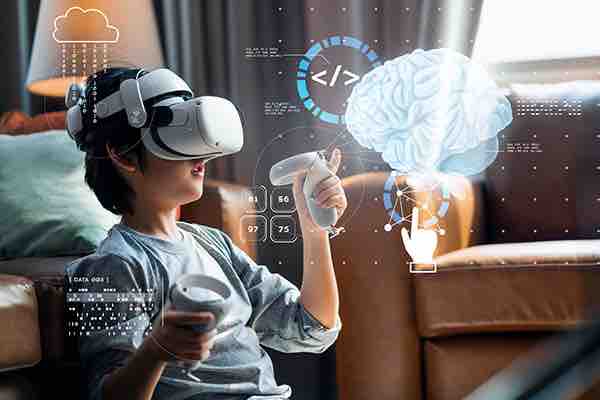Exploring the Horizon: PBL Trends and Predictions

Project Pals is mapping the future of education with an eye on the latest trends and predictions in project-based learning (PBL), ensuring that educators and students are ahead of the curve in adopting innovative practices that make learning more effective, engaging, and aligned with future demands.
Integrating Cutting-edge Technology with PBL
Technology’s role in PBL is rapidly expanding, with tools such as virtual reality (VR) and augmented reality (AR) creating immersive learning experiences. Blended learning models, which combine the strengths of both online and in-person education, are also gaining traction in PBL environments. These integrations are detailed further on our AI and Project-Based Learning page.
Fostering Global Collaboration
As digital connectivity broadens, PBL is breaking down geographical barriers, enabling students to engage with peers across the globe. This shift towards international cooperation offers rich possibilities for cross-cultural exchanges and enhances global competence. Learn about fostering global partnerships in our Lifelong Learning and PBL section.
Personalizing Learning Journeys
In keeping with the trend towards personalized education, PBL is increasingly providing learners with the autonomy to choose projects that resonate with their interests and learning preferences. Adaptive technologies are crucial in creating these personalized pathways, as explored in our Student Voice and Choice content.
Solving Real-World Problems
PBL’s focus on real-world problems is empowering students to apply their learning to tackle issues that have genuine societal, environmental, or economic impacts. This practical application fosters a sense of purpose and responsibility that is crucial for the Future of PBL.
Rethinking Assessment
With PBL, assessment is evolving beyond traditional grades towards a competency-based model that celebrates individual growth, skill development, and understanding. Portfolios and exhibitions are highlighted on our Reflection, Revision, and Public Presentation page as prime methods of assessment in PBL.
Embracing Inclusivity
PBL is striving for inclusivity by adopting Universal Design for Learning (UDL) principles and developing supportive practices for students with diverse learning needs. The importance of these inclusive practices is central to our philosophy, as discussed in Pedagogical Foundations.
Creating Interdisciplinary Connections
Interdisciplinary PBL projects reflect the complex interplay of knowledge areas in real-life scenarios. These projects challenge students to apply their understanding across different subjects, an approach detailed in our Key Components of PBL section.
Utilizing Data to Enhance Learning
Data analytics are becoming a staple in refining PBL methods, allowing educators to make informed decisions and provide targeted support. Insights into this data-driven approach can be found in our Research Studies and Findings page.
Prioritizing Environmental and Sustainability Education
Sustainability education is a growing imperative within PBL, with an increasing number of projects addressing environmental stewardship and climate change issues. This aligns with the rising trends in PBL, where the emphasis is on projects that have a lasting impact.
The trends and predictions for PBL suggest a future where education is more collaborative, personalized, and tightly interwoven with the challenges and technologies of the modern world. Stay informed with Project Pals as we continue to evolve with education.